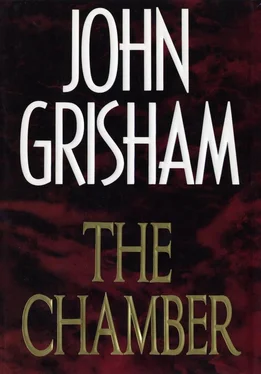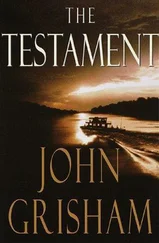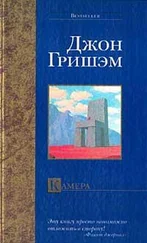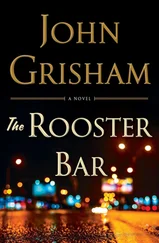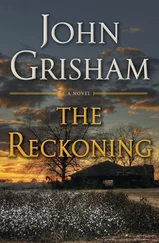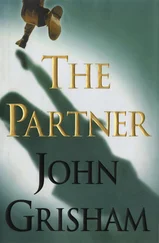“I have a statement here from Sam Cayhall,” Adam said loudly, and the circle compressed. Cameras clicked. Reporters shoved microphones and recorders into the air around Adam.
“Quiet,” someone yelled.
“Get back!” one of the guards snapped.
A tense group of Klansmen, all in matching robes but most without the hoods, packed tighter together in front of Adam. He recognized none of them from his last confrontation on Friday. These guys did not look too friendly.
The racket stopped along the grassy strip as the crowd pushed closer to hear Sam’s lawyer.
Adam pulled the note from the envelope and held it with both hands. “My name is Adam Hall, and I’m Sam Cayhall’s lawyer. This is a statement from Sam,” he repeated. “It’s dated today, and addressed to all members of the Ku Klux Klan, and to the other groups demonstrating on his behalf here today. I quote: ‘Please leave. Your presence here is of no comfort to me. You’re using my execution as a means to further your own interests. I do not know a single one of you, nor do I care to meet you. Please go away immediately. I prefer to die without the benefit of your theatrics.’”
Adam glanced at the stern faces of the Klansmen, all hot and dripping with perspiration. “The last paragraph reads as follows, and I quote: ‘I am no longer a member of the Ku Klux Klan. I repudiate that organization and all that it stands for. I would be a free man today had I never heard of the Ku Klux Klan.’ It’s signed by Sam Cayhall.” Adam flipped it over and thrust it toward the Kluckers, all of whom were speechless and stunned.
The one with the black beard and sunburned cheeks lunged at Adam in an attempt to grab the letter. “Gimme that!” he yelled, but Adam yanked it away. The guard to Adam’s right stepped forward quickly and blocked the man, who pushed the guard. The guard shoved him back, and for a few terrifying seconds Adam’s bodyguards scuffled with a few of the Kluckers. Other guards had been watching nearby, and within seconds they were in the middle of the shoving match. Order was restored quickly. The crowd backed away.
Adam smirked at the Kluckers. “Leave!” Adam shouted. “You heard what he said! He’s ashamed of you!”
“Go to hell!” the leader yelled back.
The two guards grabbed Adam and led him away before he stirred them up again. They moved rapidly toward the front gate, knocking reporters and cameramen out of the way. They practically ran through the entrance, past another line of guards, past another swarm of reporters, and finally to Adam’s car.
“Don’t come back up here, okay?” one of the guards pleaded with him.
Mcallister’s office was known to have more leaks than an old toilet. By early afternoon, Tuesday, the hottest gossip in Jackson was that the governor was seriously considering clemency for Sam Cayhall. The gossip spread rapidly from the capitol to the reporters outside where it was picked up by other reporters and onlookers and repeated, not as gossip, but as solid rumor. Within an hour of the leak, the rumor had risen to the level of near-fact.
Mona Stark met in the rotunda with the press and promised a statement by the governor at a later hour. The courts were not finished with the case, she explained. Yes, the governor was under tremendous pressure.
It took the fifth circuit less than three hours to bump the last of the gangplank appeals along to the U.S. Supreme Court. A brief telephone conference was held at three. Hez Kerry and Garner Goodman raced to Roxburgh’s office across from the state capitol building. The Attorney General had a phone system fancy enough to hook up himself, Goodman, Kerry, Adam and Lucas Mann at Parchman, Justice Robichaux in Lake Charles, Justice Judy in New Orleans, and Justice McNeely in Amarillo, Texas. The three-judge panel allowed Adam and Roxburgh to make their arguments, then the conference was disbanded. At four o’clock, the clerk of the court called all parties with the denial, and faxes soon followed. Kerry and Goodman quickly faxed the appeal to the U.S. Supreme Court.
Sam was in the process of receiving his last physical exam when Adam finished his short chat with the clerk. He slowly hung up the phone. Sam was scowling at the young, frightened doctor who was taking his blood pressure. Packer and Tiny stood nearby, at the request of the doctor. With five people present, the front office was crowded.
“Fifth Circuit just denied,” Adam said solemnly. “We’re on our way to the Supreme Court.”
“Not exactly the promised land,” Sam said, still staring at the doctor.
“I’m optimistic,” Adam said halfheartedly for the benefit of Packer.
The doctor quickly placed his instruments in his bag. “That’s it,” he said heading for the door.
“So I’m healthy enough to die?” Sam asked.
The doctor opened the door and left, followed by Packer and Tiny. Sam stood and stretched his back, then began pacing slowly across the room. The shoes slipped on his heels and affected his stride. “Are you nervous?” he asked with a nasty smile.
“Of course. And I guess you’re not.”
“The dying cannot be worse than the waiting. Hell, I’m ready. I’d like to get it over with.”
Adam almost said something trite about their reasonable chances in the Supreme Court, but he was not in the mood to be rebuked. Sam paced and smoked and was not in a talkative mood. Adam, typically, got busy with the telephone. He called Goodman and Kerry, but their conversations were brief. There was little to say, and no optimism whatsoever.
Colonel Nugent stood on the porch of the Visitors Center and asked for quiet. Assembled before him on the lawn was the small army of reporters and journalists, all anxiously awaiting the lottery. Next to him on a table was a tin bucket. Each member of the press wore an orange, numbered button dispensed by the prison administration as credentials. The mob was unusually quiet.
“According to prison regulations, there are eight seats allotted to members of the press,” Nugent explained slowly, his words carrying almost to the front gate. He was basking in the spotlight. “One seat is allotted to the AP, one to the UPI, and one to the Mississippi Network. That leaves five to be selected at random. I’ll pull five numbers from this bucket, and if one of them corresponds to your credentials, then it’s your lucky day. Any questions?”
Several dozen reporters suddenly had no questions. Many of them pulled at their orange badges to check their numbers. A ripple of excitement went through the group. Nugent dramatically reached into the bucket and pulled out a slip of paper. “Number four-eight-four-three,” he announced, with all the skill of a seasoned bingo caller.
“Here you go,” an excited young man called back, tugging at his lucky badge.
“Your name?” Nugent yelled.
“Edwin King, with the Arkansas Gazette.”
A deputy warden next to Nugent wrote down the name and paper. Edwin King was admired by his colleagues.
Nugent quickly called the other four numbers and completed the pool. A noticeable ebb of despair rolled through the group as the last number was called out. The losers were crushed. “At exactly eleven, two vans will pull up over there.” Nugent pointed to the main drive. “The eight witnesses must be present and ready. You will be driven to the Maximum Security Unit to witness the execution. No cameras or recorders of any type. You will be searched once you arrive there. Sometime around twelve-thirty, you will reboard the vans and return to this point. A press conference will then be held in the main hall of the new administration building, which will be opened at 9 P.M. for your convenience. Any questions?”
“How many people will witness the execution?” someone asked.
Читать дальше
